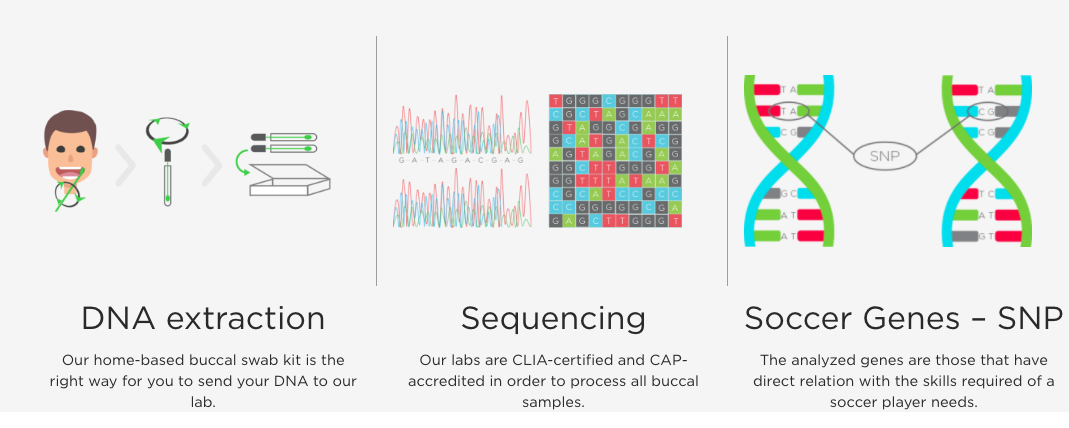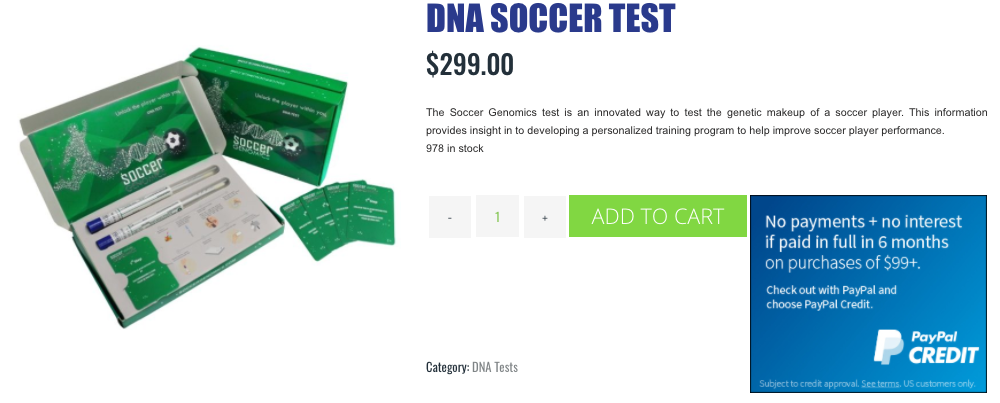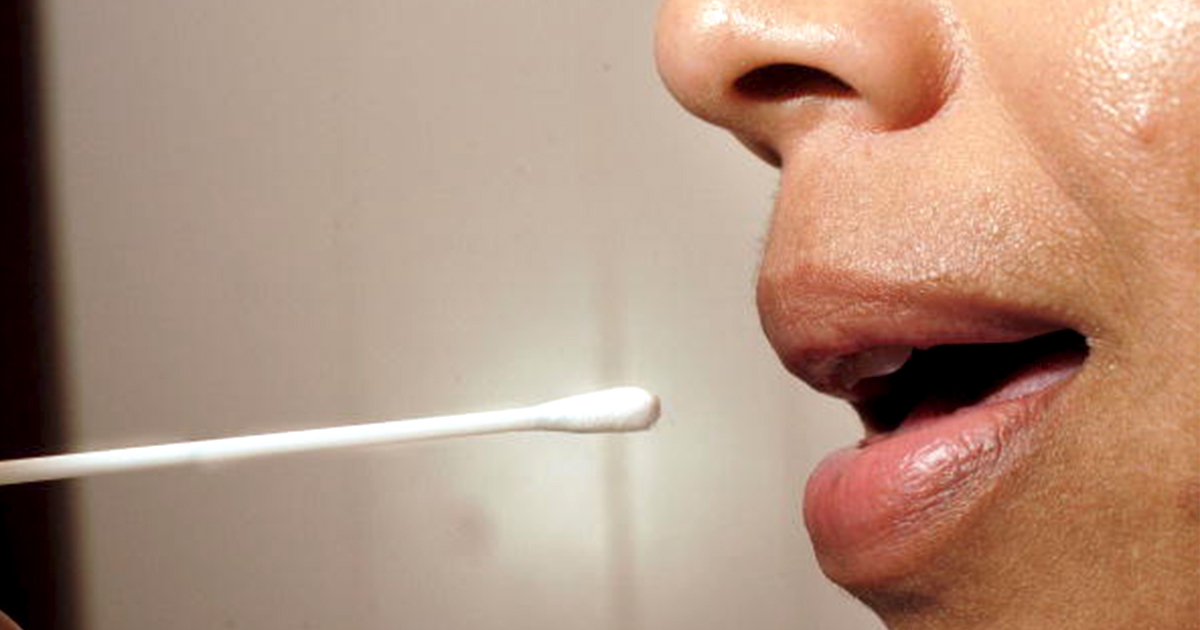This Company Claims a Genetics Test Can Make Kids Better at Soccer

By:
Disappointed in your kid's performance on the soccer field? A $299 at-home DNA test might be right for you, according to the company Soccer Genomics.
Here's how it works: Order the DNA test, swab the inside of the test subject's cheek, send that swab to a lab for DNA sequencing, and wait for the results. Soccer Genomics claims that the test will identify genetic strengths and weaknesses that can then help you develop a corresponding training routine and nutritional guideline.
 Soccer Genomics - soccergenomics.com
Soccer Genomics - soccergenomics.com
But over the weekend, some experts who study genetics and biology raised doubts about the utility of such a test.
Though the science of genomics has advanced significantly over the years, not everyone is convinced that our understanding of genetics can used to enhance the athletic skills of soccer players—at least not yet.
"Basically, genomics will not inform anyone about an individual's potential soccer skills," Dr. Neil Hall, a professor of functional and comparative genomics at the University of Liverpool, told ATTN:. "Obviously you can learn about your risk of developing disease or even some statistical conjecture about your athletic potential."
"But the idea that a genetic test would be more informative than your child's actual ability and observed enthusiasm is utter nonsense," he said. "The stench of snake oil is intoxicating."
Hall said he believes Soccer Genomics "has deduced there is a large potential market of aspirational parents who would do anything to give their child an edge." It's part of a trend that's "attracting a lot of opportunist companies," but he sees "little evidence that any have a product based on scientific evidence."
Luis Pinate, CEO of Soccer Genomics, told ATTN: that the company's DNA test is only "part of the puzzle" as far as improving athletic skills goes. He pushed back against critics, arguing that "information is power" and what the test provides is information that can only be learned through genetic testing.
 Soccer Genomics - soccergenomics.com
Soccer Genomics - soccergenomics.com
If test results show that you're not genetically predisposed to speed, for example, understanding that weakness can help you develop an individualized training routine or provide guidance in selecting a position on the field, Pinate said. And, to be sure, there have been studies indicating certain genes are associated with athletic markers such as endurance and speed.
Dr. Marios Kambouris, an expert in molecular and medical genetics who has lead several studies identifying performance-related genes, told ATTN: that his research has demonstrated that DNA variants can "influence biological processes that play a role in everyday life for normal body functioning" as well as "athletic performance."
While predictive genomic testing "can be utilized as one tool to improve athletic performance by personalizing and individualizing training programs, sports nutrition, and choice of sport, it cannot indicate the next Olympic champion," Kambouris said.
He added that companies selling predictive genomic tests often fail to provide consumers with "information on how many and which specific [DNA] variants they utilize to draw their conclusions until after one has ordered the test and paid the fee." The average person likely wouldn't know what to do with that information, but it's critical because his research has identified "at least 150 variants that could be utilized in evaluating athletic potential." Failing to account for all of these variants can leave consumers with an incomplete picture.
Outside of the commercial genomics market, the potential for DNA sequencing has excited scientists and health professionals. Genetic testing is increasingly used to diagnose inherited conditions, identify individuals who carry genes for certain disorders, and help forensic scientists in criminal investigations.
When it comes to at-home genomic testing, however, the scientific community has cautioned against putting too much stock in these products.
 Getty Images/William Thomas Cain - gettyimages.com
Getty Images/William Thomas Cain - gettyimages.com
"The growing market for direct-to-consumer genetic testing may promote awareness of genetic diseases, allow consumers to take a more proactive role in their health care, and offer a means for people to learn about their ancestral origins," according to the National Institutes of Health (NIH). "At-home genetic tests, however, have significant risks and limitations."
"Consumers are vulnerable to being misled by the results of unproven or invalid tests. Without guidance from a healthcare provider, they may make important decisions about treatment or prevention based on inaccurate, incomplete, or misunderstood information about their health. Consumers may also experience an invasion of genetic privacy if testing companies use their genetic information in an unauthorized way."
What's more, there's a risk that these products overemphasize the role of genetics. These tests provide "only one piece of information about a person’s health," NIH reported. "[O]ther genetic and environmental factors, lifestyle choices, and family medical history" are also important to consider.
In other words, if you're hoping to boost your kids' soccer game, it might be worth starting with some footwork exercises and dribbling drills before attempting to game their genetics.
